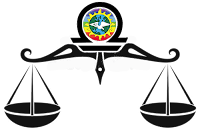a patada y golpe, la verdad no es verdad,
un hecho es mentira.
Nunca nos hemos hundido tan bajo
ni tanto subido la mugre.
© Rafael Jesús González 2025
The aspiring tyrant promises to persecute all who disagree with the fascist principles the murdered young man espoused.
El aspirante tirano promete perseguir a todo mundo que no estén de acuerdo con los principios fascistas que predicaba el joven asesinado.

Cynically, huge amounts of money are pouring into California from Republicans to defeat Prop. 50 calling it “undemocratic and expensive, a power-grab to silence voters.” Prop. 50 is an emergency, temporary measure to stop the total fascist takeover of the United States of America. CALIFORNIANS, VOTE YES ON PROP. 50.
Cínicamente, los republicanos están invirtiendo enormes cantidades de dinero en California para derrotar la Proposición 50 llamándola “antidemocrática y costosa, una toma de poder para silenciar a los votantes.”” La Proposición 50 es una medida temporal de emergencia para detener la toma de control fascista total de los Estados Unidos de América. CALIFORNIANOS, VOTEMOS SÍ A LA PRPOSICIÓN 50.


















